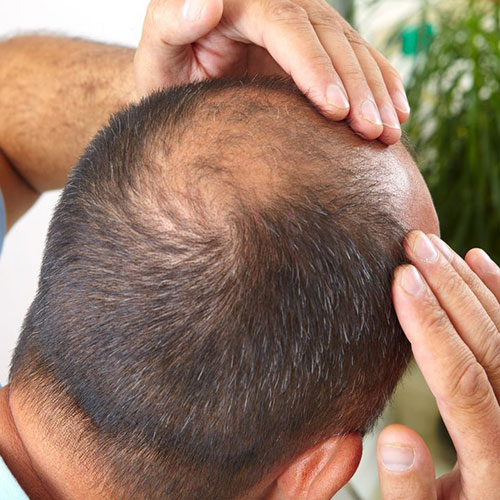You may have heard about lip augmentation surgery, a procedure that’s commonly done to make your lips fuller. Less commonly discussed is reduction surgery — this is done to decrease the volume in your lips. While not as prevalent, lip reduction surgery is useful if you want smaller lips, or if you don’t care for the results from a previous augmentation.
Surgery is much different from a dermatological procedure, and there are also more risks, including infection and scarring.
Still, lip reduction surgery is considered safe overall Trusted Source when performed by an experienced and board-certified provider.

Lip reduction surgery
Lip reduction surgery involves removing skin tissues from the lower or upper lips, or sometimes both. This is done in an effort to reshape the entire lip area.
First, anesthesia — either local or general — is used so you won’t feel any pain.
During the procedure, a surgeon makes an incision in a horizontal line in the pink inner portion of your lip. This minimizes scarring.
The surgeon then removes excess fat and tissues from the lip to reduce its overall volume.
Once all the targeted tissues are removed, the surgeon will close up the incision with stitches. These usually fall off on their own within a few days or weeks.
“Brazilian” reduction
Some lip reduction procedures focus on slimming down only one of the lips. One such procedure is known as the “Brazilian” technique.
This procedure focuses on the shape of the lower lip, taking inspiration from a bikini lineTrusted Source, which is traditionally more triangular-shaped at the bottom.
To achieve the desired shape and volume reduction, the surgeon removes a greater portion from the center of the lower lip.
Lip reduction surgery side effects
The lips are among the most sensitive parts of your body, so it’s important to work with an experienced surgeon to minimize your risk of side effects.
At the very least, you should expect redness, swelling, and slight pain within the first few days after your surgery. Bruising is also possible.
Less commonly, lip reduction surgery may cause:

infection

scarring

severe swelling

bleeding

allergic reaction (to the anesthesia)
Despite the risk of side effects, lip reduction is considered a safe procedure
Lip reduction surgery recovery time
Swelling and redness can last for a few days, but you should be able to talk and move around more comfortably after this time.
It can take a week or two for the sutures to come out and for your lips to completely heal. While this can seem like a big time commitment, the time frame is a lot shorter compared to other cosmetic surgeries. As a general rule of thumb, you should expect to take a full week off work.
During recovery, your doctor may recommend applying ice packs to your lips. You might also consider over-the-counter pain relievers, such as acetaminophen or ibuprofen. See your surgeon if your postsurgery symptoms last longer than two weeks.
Lip reduction surgery candidates
Candidates for lip reduction surgery are generally those who want to change their facial appearance. Most people who get this type of surgery have naturally large lips, or they have larger than desired lips from a prior augmentation surgery.
Your lips can also change with age. Lip reduction may be a viable solution for any resulting asymmetry. It’s also common to get the lip reduction procedure in addition to other aesthetic treatments, such as dermal fillers. Lip reduction techniques may also be used as corrective procedures for cleft lipTrusted Source and palate.
Still, not everyone is a candidate.
Autoimmune and inflammatory diseases can limit your candidacy, especially if your condition causes frequent mouth sores. You’ll want to disclose your full medical history with your surgeon in advance so that you can limit your risk of side effects.
Smoking is also off-limits before surgery, as well as during your recovery.
You can’t get lip surgery if you have cold sores or other types of mouth sores. Infections around the mouth area can also limit your time frame for surgery. Your surgeon may ask that you treat the infection first and then schedule your procedure for a later time.
Be sure to tell your doctor if you have a history of cold sores or herpes blisters of the mouth. They’ll likely prescribe medication to prevent an outbreak while you’re healing.
Finding a provider
Lip reductions are performed by plastic surgeons. These are not done by aestheticians.
It’s important to shop around for the right surgeon before committing to a lip reduction procedure. You can start with the American Society of Plastic Surgeons’ search tool for providers in your area. Note that many plastic surgeons charge a consultation fee.
Once you’ve narrowed your search down to a few potential surgeons, call and set up a consultation. This is your opportunity to ask about the surgeon’s experience, as well as to look at their portfolio.
Surgery cost
Lip reduction, like other types of cosmetic surgeries, isn’t covered by insurance.
According to the American Society of Plastic Surgeons, the average cost of a lip reduction was $1,943 based on national data retrieved in 2017.
Your exact cost can vary by provider, location, and the extent of your surgery (treating one lip or both). Depending on your situation, you may need more than one surgery. Keep in mind that anesthesia is charged separately.
Due to the steep costs of cosmetic surgery, many providers now offer financing and payment plans. You can also ask your provider about any discounts or specials.
Lip reduction without surgery
While surgery is the only definitive way you can decrease volume in your lips, there are alternative methods to help reduce the appearance of lip size. Some possibilities include:
- using dermal fillers in your cheeks to add volume in the upper part of your face
- applying foundation or concealer on your lips before putting on any lip color
- opting for darker color lipsticks and stains, and avoiding nude shades
- trying facial exercises
- staying hydrated to reduce inflammation in the lips
The takeaway
Lip reduction surgery may be a viable option if you’re looking for a permanent solution to reduce the volume of your lips. It’s important to discuss all the potential risks and required costs with a provider beforehand.
 After
After Before
Before After
After Before
Before After
After Before
Before
